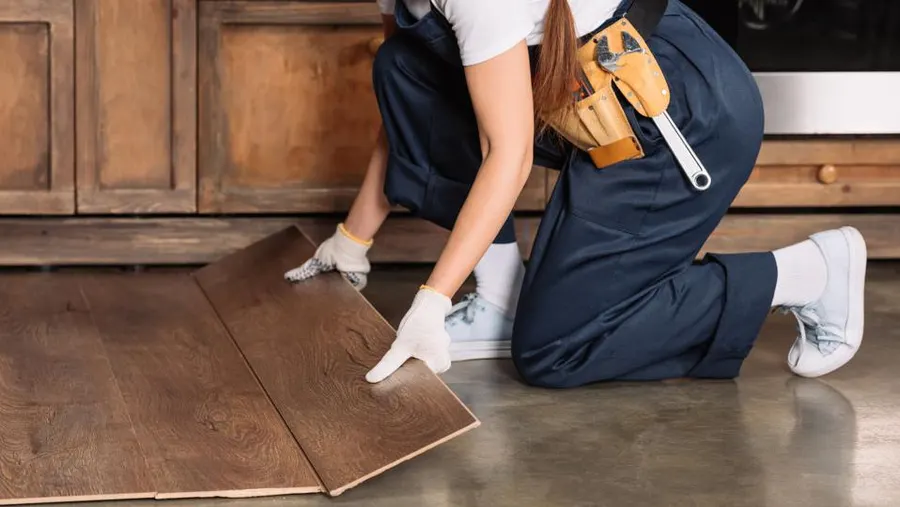Vinyl flooring has emerged as a popular choice for homeowners in Canada due to its durability, versatility, and aesthetic appeal. With a wide range of styles, colors, and textures available, vinyl flooring can complement any home decor and withstand the challenges of Canadian winters. In this article, we will delve into the various benefits of vinyl flooring, explore different types of vinyl flooring options, and discuss the importance of custom design.
Benefits of Vinyl Flooring
- Durability: Vinyl flooring is known for its exceptional durability, making it a long-lasting investment for your home. It is resistant to scratches, stains, and dents, ensuring that your floors remain beautiful for years to come.
- Water Resistance: Vinyl flooring is inherently water-resistant, making it an ideal choice for areas prone to spills or moisture, such as kitchens, bathrooms, and basements. It is also easy to clean and maintain, requiring minimal effort to keep it looking its best.
- Versatility: Vinyl flooring comes in a vast array of styles, colors, and textures, allowing you to create a unique and personalized look for your home. From classic wood grain patterns to contemporary abstract designs, there is a vinyl flooring option to suit every taste and preference.
- Comfort: Vinyl flooring is generally soft and comfortable underfoot, providing a pleasant walking experience. It is also quieter than hard flooring materials like tile or hardwood, reducing noise transmission between rooms.
- Affordability: Vinyl flooring is often more affordable than other flooring options, making it a cost-effective choice for homeowners on a budget. It also offers excellent value for money, considering its durability and long-lasting qualities.
Types of Vinyl Flooring
- Luxury Vinyl Plank (LVP): LVP is a popular choice for homeowners seeking a high-end look and feel. It features wide planks that mimic the appearance of natural wood, with realistic textures and grain patterns. LVP is also highly durable and resistant to wear and tear.
- Luxury Vinyl Tile (LVT): LVT offers a more versatile option with smaller, square tiles that can be arranged in various patterns. It is ideal for creating a modern or contemporary look, and it is available in a wide range of colors and styles.
- Sheet Vinyl: Sheet vinyl is a continuous flooring material that comes in rolls and is glued directly to the subfloor. It is a cost-effective option that offers good durability and is easy to clean.
Custom Vinyl Flooring Designs
One of the greatest advantages of vinyl flooring is its ability to be customized to suit your unique style and preferences. Here are some ways to create custom vinyl flooring designs:
- Color Customization: Many vinyl flooring manufacturers offer a wide range of colors and finishes to choose from. You can mix and match different colors to create a unique and eye-catching design.
- Pattern Customization: Vinyl flooring can be installed in a variety of patterns, including herringbone, chevron, and basketweave. These patterns can add visual interest and personality to your space.
- Inlays and Borders: Incorporate inlays or borders made of different materials or colors to create a more intricate and sophisticated design.
- Custom Logos or Designs: For commercial spaces or homeowners with specific design preferences, it is possible to create custom vinyl flooring with logos, designs, or patterns.
- Combination Flooring: Combine vinyl flooring with other flooring materials, such as tile or hardwood, to create a unique and visually appealing look.
Installation Process
The installation of vinyl flooring typically involves the following steps:
- Subfloor Preparation: Ensure that the subfloor is clean, level, and free of any defects. If necessary, repair any damage or install a leveling compound.
- Underlayment: Install an underlayment layer beneath the vinyl flooring to provide cushioning, insulation, and moisture protection.
- Installation: Depending on the type of vinyl flooring, it can be installed either by gluing it to the subfloor or using a floating installation method.
- Trimming and Finishing: Trim the vinyl flooring to fit the room and install baseboards or transition strips to create a seamless finish.
Stairs and Vinyl Flooring
Vinyl flooring can also be used to cover stairs, providing a durable and stylish solution. There are several options for stair installation, including:
- Vinyl Stair Treads: These are individual treads that can be glued or screwed onto existing stair treads.
- Vinyl Stair Runners: A continuous strip of vinyl that can be installed on the edges of the stairs.
- Vinyl Stair Risers: These are vinyl sheets that can be glued to the risers of the stairs.
When choosing vinyl flooring for your stairs, it is important to consider factors such as the style of your home, the amount of traffic on the stairs, and your budget.
Conclusion
Vinyl flooring offers a versatile, durable, and affordable solution for Canadian homes. With its ability to be customized to suit your unique style and preferences, vinyl flooring can transform your home into a beautiful and personalized space. By considering the benefits, types, and installation process of vinyl flooring, you can create a flooring solution that will enhance the value and appeal of your property.
